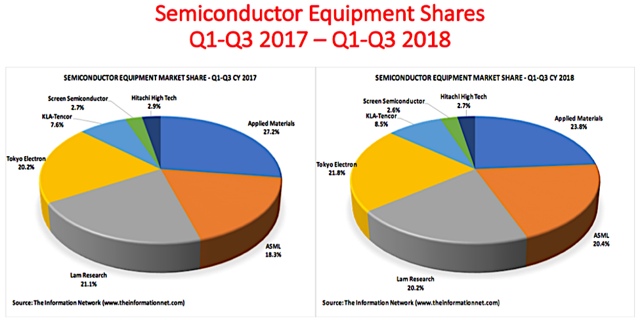PLAINVIEW, New York—Nov. 29, 2018—Veeco Instruments Inc. and Gooch & Housego (G&H), the world’s leading supplier of high quality superpolished optical components today announced the successful installation of Veeco’s SPECTOR® Ion Beam Sputtering (IBS) Optical Coating System at G&H’s Moorpark, Calif. facility. The new capability provided by SPECTOR supports G&H’s expanding portfolio of high-quality optics for ultraviolet, visible and infrared systems used in telecommunications, aerospace and defense, life science and industrial applications.
SPECTOR
offers exceptional layer thickness
control, enhanced process stability and the lowest published optical
losses in the industry, and has become the IBS system of choice for over
200 advanced manufacturing settings worldwide. G&H
will use this system to support its expanding portfolio of
high-quality optics for UV, visible and infrared systems used across
telecommunications, aerospace and defense, life science and industrial
applications.
“G&H is at the forefront of engineering a broad range of photonics technologies, leveraging optical coatings to advance crystal growth, electro-optics and fiber optics in next-generation applications,” said Adam Morrow, product line manager at G&H. “As we navigate the increasingly complex specifications required for these processes, we’ve turned to Veeco as a partner that can uphold our long-standing pedigree of high-quality optics.”
G&H’s growing presence in the laser optics landscape builds on the company’s tenured history as a supplier of high-quality photonics components. Complementing G&H’s superpolished surfaces, Veeco offers IBS coatings that achieve very low levels of total loss while maintaining surface roughness quality, density and exceptional environmental stability.
The SPECTOR IBS platform offers exceptional layer thickness control, enhanced process stability, and the lowest published optical losses in the industry. The system is engineered to improve key production parameters, such as target material utilization, optical endpoint control, and process time for cutting-edge optical coating applications. The SPECTOR platform, which is the preferred IBS system in the industry, has been installed in more than 200 advanced manufacturing settings across the world.
“Veeco’s IBS systems allow our customers to achieve the highest precision and thin film process flexibility necessary for successful advanced photonics and next-generation high-growth applications,” added Adrian Devasahayam, Ph.D., vice president and general manager of Veeco’s Advanced Deposition and Etch (AD&E) business. “We’re confident in the SPECTOR system’s ability to provide G&H with the qualitative advantages of IBS technology, including low scatter loss, high film purity, stable deposition rates and film thickness control of less than 0.1 nm in a robust package that significantly boosts throughput and lowers cost of ownership for customers.”
According to BCC Research, the global market for optical coatings is expected to reach $14.2 billion in 2021, up from $9.5 billion in 2016. Key drivers of this growth are emerging applications in commercial and consumer categories, as well as innovative coatings to improve a broad range of existing applications.


















